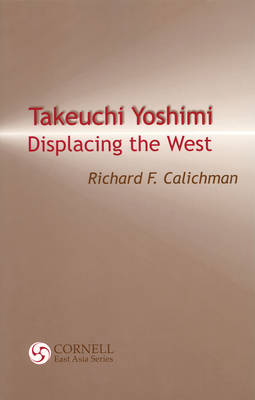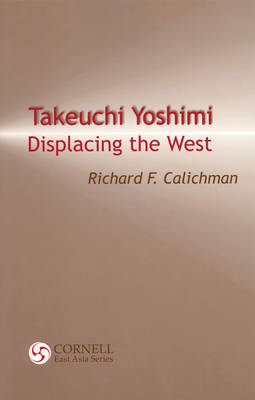
- Retrait gratuit dans votre magasin Club
- 7.000.000 titres dans notre catalogue
- Payer en toute sécurité
- Toujours un magasin près de chez vous
- Retrait gratuit dans votre magasin Club
- 7.000.000 titres dans notre catalogue
- Payer en toute sécurité
- Toujours un magasin près de chez vous
Description
This work focuses on the writings of the postwar Japanese thinker and sinologist Takeuchi Yoshimi (1910-1977). It presents itself less as an intellectual biography than as a series of explorative readings of his work. These readings attempt to trace out the various problematics with which Takeuchi was engaged throughout his career, with particular emphasis given to the notions of modernity, subjectivity and alterity. In all cases, an effort was made to do justice to the difficult notion of "resistance," for which Takeuchi is perhaps most well-known. We have argued that what Takeuchi refers to as "Oriental resistance" against the West is in fact reflective of a more comprehensive notion of resistance, one that may be understood along the lines of the ultimate impossibility of conceptual knowledge. This impossibility is for Takeuchi essentially linked to a privileging of historical singularity over subjective identity, and with this a shift in emphasis from activity to passivity. We have sought throughout the work to draw out the complexity of Takeuchi's thought, and in this way bring forth not only the important possibilities that inhere within it but as well what we consider to be at times its insufficiencies, or limits.
Spécifications
Parties prenantes
- Auteur(s) :
- Editeur:
Contenu
- Nombre de pages :
- 254
- Langue:
- Anglais
Caractéristiques
- EAN:
- 9781885445209
- Date de parution :
- 31-03-10
- Format:
- Livre broché
- Format numérique:
- Trade paperback (VS)
- Dimensions :
- 140 mm x 216 mm
- Poids :
- 317 g







